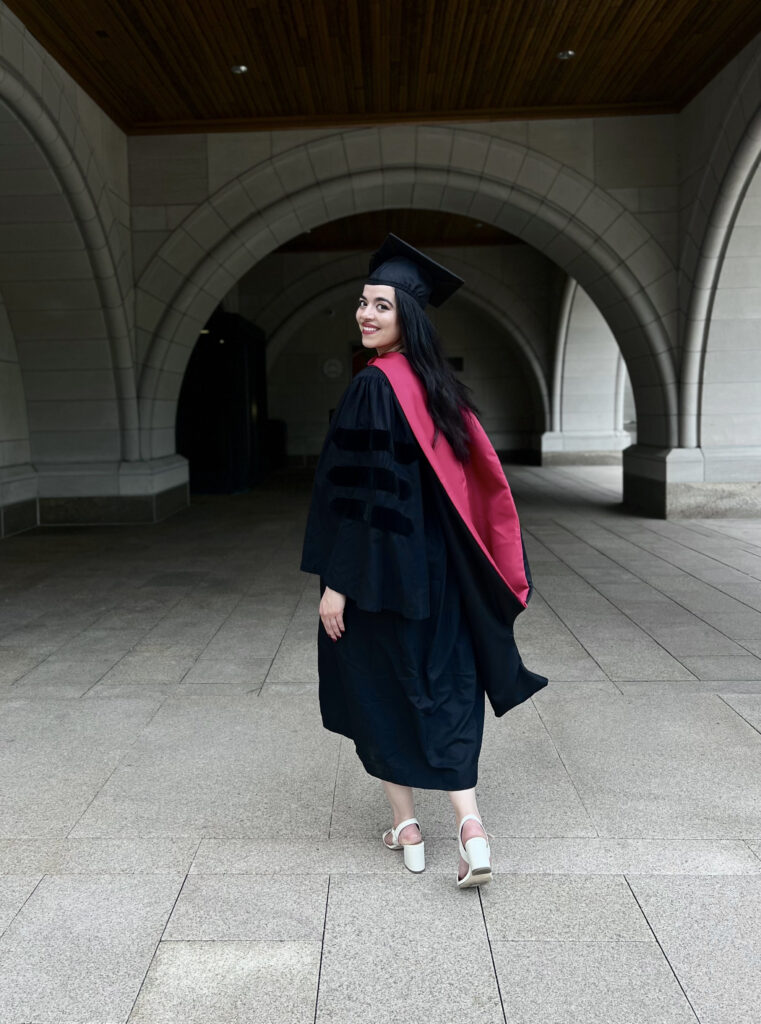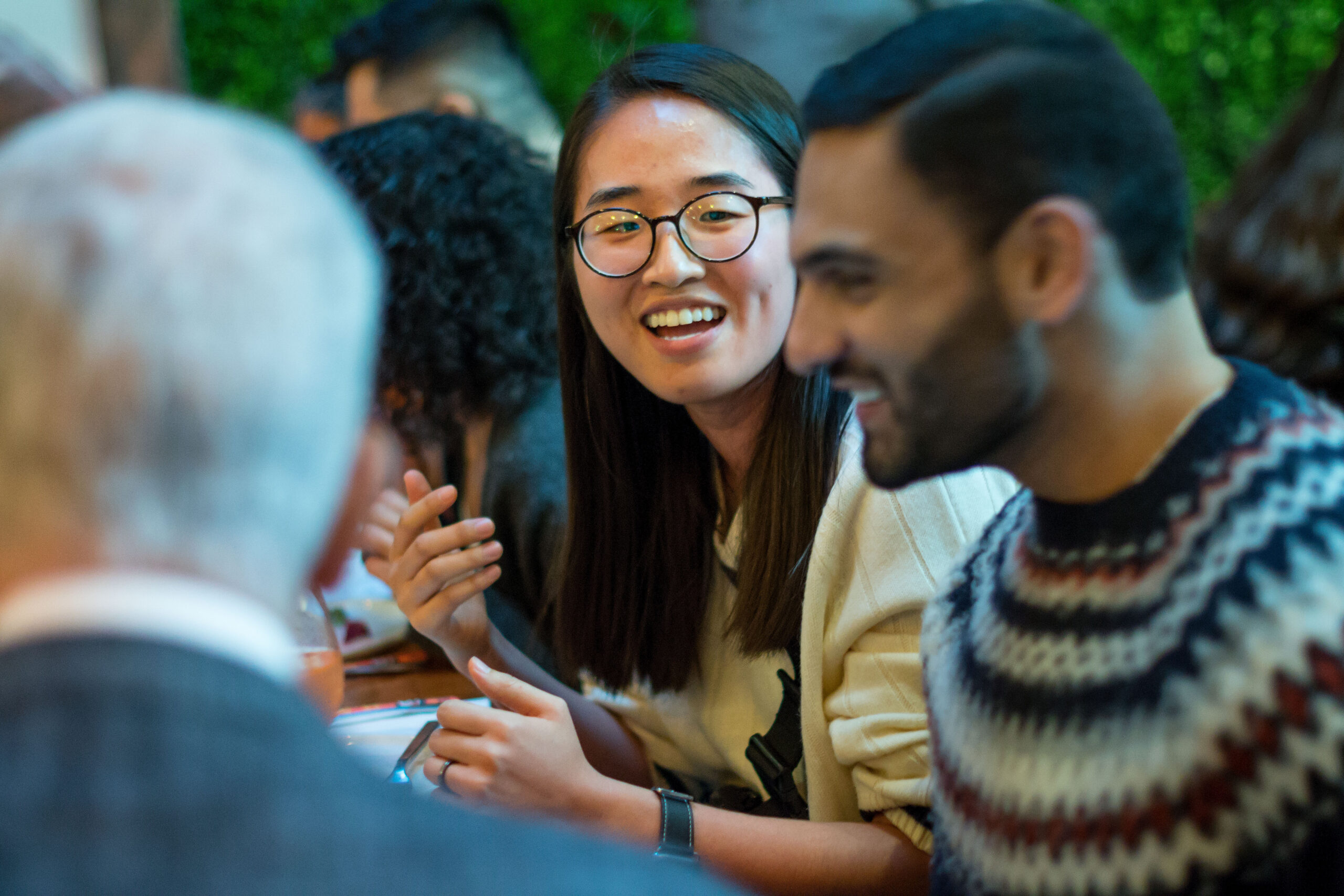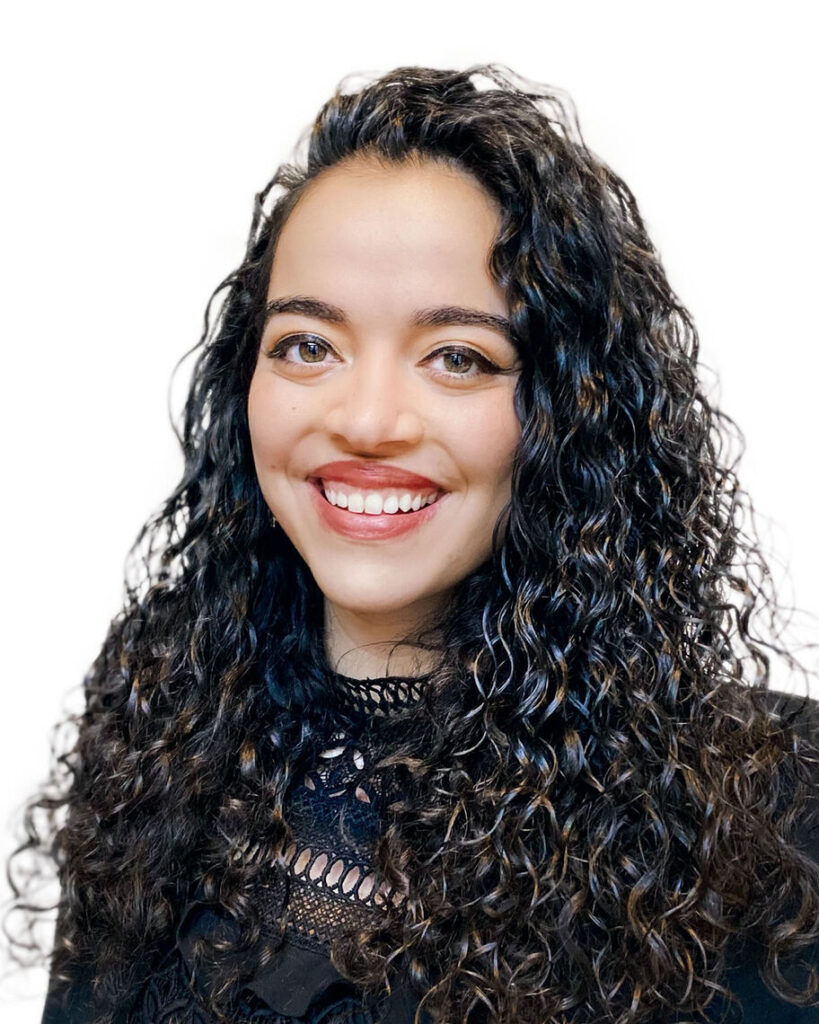- Fellow Highlights
LOOKING BACK AT THE FELLOWSHIP: JD Student Laila Ujayli
2022 Paul & Daisy Soros Fellow Laila Ujayli is a JD student at Harvard University.
Laila is the daughter of Syrian immigrants. She inherited a love of storytelling from her grandfather, a well-regarded author from Raqqa, Syria. Years later, Raqqa’s occupation by ISIS and subsequent destruction has motivated her to fiercely advocate for the rights of victims of conflict and elevate their stories.
Laila is passionate about the intersection of narrative and human rights. She graduated summa cum laude from The Ohio State University with a double major in international relations and English, and a double minor in screenwriting and business. As a Rhodes Scholar, she spent two years at the University of Oxford pursuing consecutive master’s degrees in film aesthetics and public policy, attaining distinction in both degrees.
Laila hopes to be a screenwriter and human rights lawyer, with a future dedicated to elevating the voices of marginalized populations, cultivating empathy, and utilizing storytelling to uplift laws that safeguard the wellbeing of people within the United States and abroad.
We caught up with Laila about what’s next and what the Fellowship has meant to her:

Where are you with your graduate program now? Whether you’re still in school or you’ve graduated, what’s the next step for you or what are the steps you’ve taken after graduating?
I graduated at the end of May with my J.D. from Harvard Law School. This fall, I will begin a federal appellate clerkship on the Sixth Circuit Court of Appeals back in my hometown of Columbus, Ohio.
Can you tell us more about your graduate studies? What questions were you/are you pursuing? What was/is the main focus of your studies?
Like many J.D. students, I gained a solid foundation in U.S. domestic law. But I also built a strong emphasis on international law through coursework, an independent writing project, and an externship. During two semesters and a winter term with Harvard’s International Human Rights Clinic, I worked on projects related to humanitarian disarmament and civilian protection during armed conflict. During my final semester, for example, I worked with a team to finalize a report in partnership with Human Rights Watch about the destruction of cultural heritage – such as monuments, arts, museums, libraries, and places of worship – caused by the bombing and shelling of cities and towns, and the effects of such destruction on civilians, their livelihoods, and their prospects of recovery. The destruction of cultural heritage has emerged as a recurring tragedy of armed conflict, with high-profile instances in Syria, Yemen, and Ukraine, and of course today in Gaza. Civilian protection and other human rights-related issues were some of the issues that drove me to law school in the first place, so having had the opportunity to work on them at such an important, devastating time has felt both validating and necessary.
Over the past two years, what personal or professional accomplishment are you most proud of?
Unlike what an iconic rom-com character in pink might say, law school is actually hard. It’s easy for your studies to consume all of your time and to lose sight of other interests. So, in addition to building lasting friendships, I am most proud that I was able to keep a tight grip on my passion for screenwriting. I entered law school with a master’s degree in Film Aesthetics and a firm commitment that storytelling is vital to social change. While in law school, I was happy that I continued to carve out time to work on screenplays and maintain that narrative muscle. And this year, I managed to fuse both my interest in law and screenwriting through an independent writing project that studied the work of the Sleepy Lagoon Defense Committee, a community organization comprised of activists, actors, filmmakers, and Los Angeles community members formed to support the legal defense of several Mexican-American teenagers convicted of murder in 1942. For the project, I drafted both a screenplay based on the topic and a more traditional historical and legal analysis of the case. I was excited that, despite its non-traditional form, the project was awarded one of Harvard Law School’s writing prizes, the Klemens von Klemperer Prize, awarded annually to the Harvard Law School student who writes the most compelling essay on the subject of Resistance.
Why did you apply to The Paul & Daisy Soros Fellowships for New Americans? What ended up being the most important part of the Fellowship?
I applied to the Soros fellowship for funding and a professional network. And while the funding and the professional network were both vital to my law school success, the friendships and sense of community I gained from the fellowship ended up being the most important part. Navigating competitive U.S. higher education programs without a long legacy of family and friends familiar with the U.S. system is definitely not easy, so having people in your corner with analogous struggles and experiences is so valuable. I’ve gained so much emotional support, moral guidance, and true mentorship through this community that would be impossible to replace.
What advice would you give to someone who is thinking of applying to The Paul & Daisy Soros Fellowships for New Americans?
Apply, apply, apply! I hear from so many students who count themselves out and feel like applying to fellowships like the Soros would be a waste of time given a presumption that their application will not succeed. That included me: I almost didn’t apply to Soros because I thought I was not the right fit for the fellowship and that my application would not be selected. But you never know – so apply and never self-disqualify. ∎
Keep Exploring
-
 Read more: The Public Voices Fellowship of PD Soros, in partnership with the Oped Project: Year Four
Read more: The Public Voices Fellowship of PD Soros, in partnership with the Oped Project: Year FourThe Public Voices Fellowship of PD Soros, in partnership with the Oped Project: Year Four
-
Read more: NOT ON MY RESUME: Ming Hsu Chen
- Fellow Highlights
- Fellows in Action
NOT ON MY RESUME: Ming Hsu Chen
-
 Read more: Kathy Ku Steps into Leadership as PDSFA Chair
Read more: Kathy Ku Steps into Leadership as PDSFA Chair- Board of Directors
- Fellowship News
Kathy Ku Steps into Leadership as PDSFA Chair
-
 Read more: Q&A with MD/PhD Student Silvia Huerta Lopez
Read more: Q&A with MD/PhD Student Silvia Huerta LopezQ&A with MD/PhD Student Silvia Huerta Lopez
